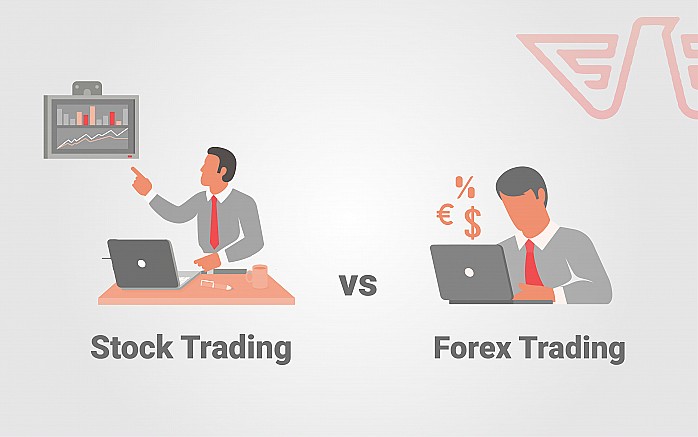When it comes to risk management, there is a big difference between stock trading and forex trading. The former involves buying and selling shares of individual companies, while the latter involves exchanging cash between two countries. For short-term strategies, forex is a better choice. This is because it offers higher leverage, making short-selling difficult, but it can produce easy profits for focused traders. However, the main disadvantage of forex trading is that it is much more volatile than the stock market.
Table of Contents
Currency exchange market
While both markets have similarities and differences, there are some key differences. The first is the nature of the currency exchange market. It is a highly liquid marketplace, whereas stocks have limited supply and can fluctuate dramatically. In addition, stocks are traded worldwide, meaning that they are more difficult to analyze, which makes them less suitable for beginners. On the other hand, the currency market is the safer option for investors who are more risk-averse.
Another key difference between forex and stock trading is liquidity. While stocks have limited supply, forex is infinite. It has no shortages, which allows for very high levels of liquidity. For new traders, forex may seem more accessible, but stocks may require more training and experience to profit from it. If you’re new to the market, you should understand the risks involved. In particular, you should take note of the risks of investing in the wrong stock.
When you’re ready to start trading
The first step is to understand how the market works. While stock traders focus on the technicalities of buying and selling assets, forex traders spend more time learning about the industry. A common mistake many novices make is to ignore the basics of the stock market. Ultimately, the best way to learn about the forex market is to read about it and become familiar with its economics. Then, once you’re comfortable with the basics, you can move on to trading on the other instruments.
In forex trading
You buy and sell currencies. Unlike stocks, there are no stocks. This means you can buy and sell different currency pairs. A good reason to learn about the different currency pairs is that they are similar and have a large number of trading opportunities. You can also buy and sell shares of a currency pair. But in the case of stocks, you don’t have to worry about your investments.
The basic difference between forex and stock trading is their purpose. Both involve buying and selling currencies. Obviously, stock trading is more popular and more profitable than forex. But when it comes to Forex, currency pairs are more diverse and have a higher volatility. A currency exchange is more likely to be unstable than a stock. But a Forex trader’s goal is to make money by buying and selling a currency.
Various forex trading
In forex trading, the difference between forex trading and stock trading is in the size and frequency of market activity. In stock markets, most investors are merely looking for a profit. In Forex, there are more opportunities for investors. When you’re looking for a good investment opportunity, it’s better to look for a company that has a larger market. If you’re new to the market, you should be aware of the risks involved.
There is a huge difference between forex and stock trading. Traders can open positions in both markets at the same time. The major difference is in the type of investment they are targeting. A short-term trader may be more interested in buying and selling currencies, while a long-term investor will focus on a long-term strategy. Both types of investors can also choose a currency with a low volatility.
Conclusion:
In forex trading, the risk of losing money is less. Traders may be more comfortable with a short-term strategy. In stock trading, the risk is lower. But with stocks, short-term strategies are more difficult. A long-term trader should take into account the risks and reward. In both cases, traders should have a long-term strategy. And a strategy that incorporates both of these strategies is better than a single one.











